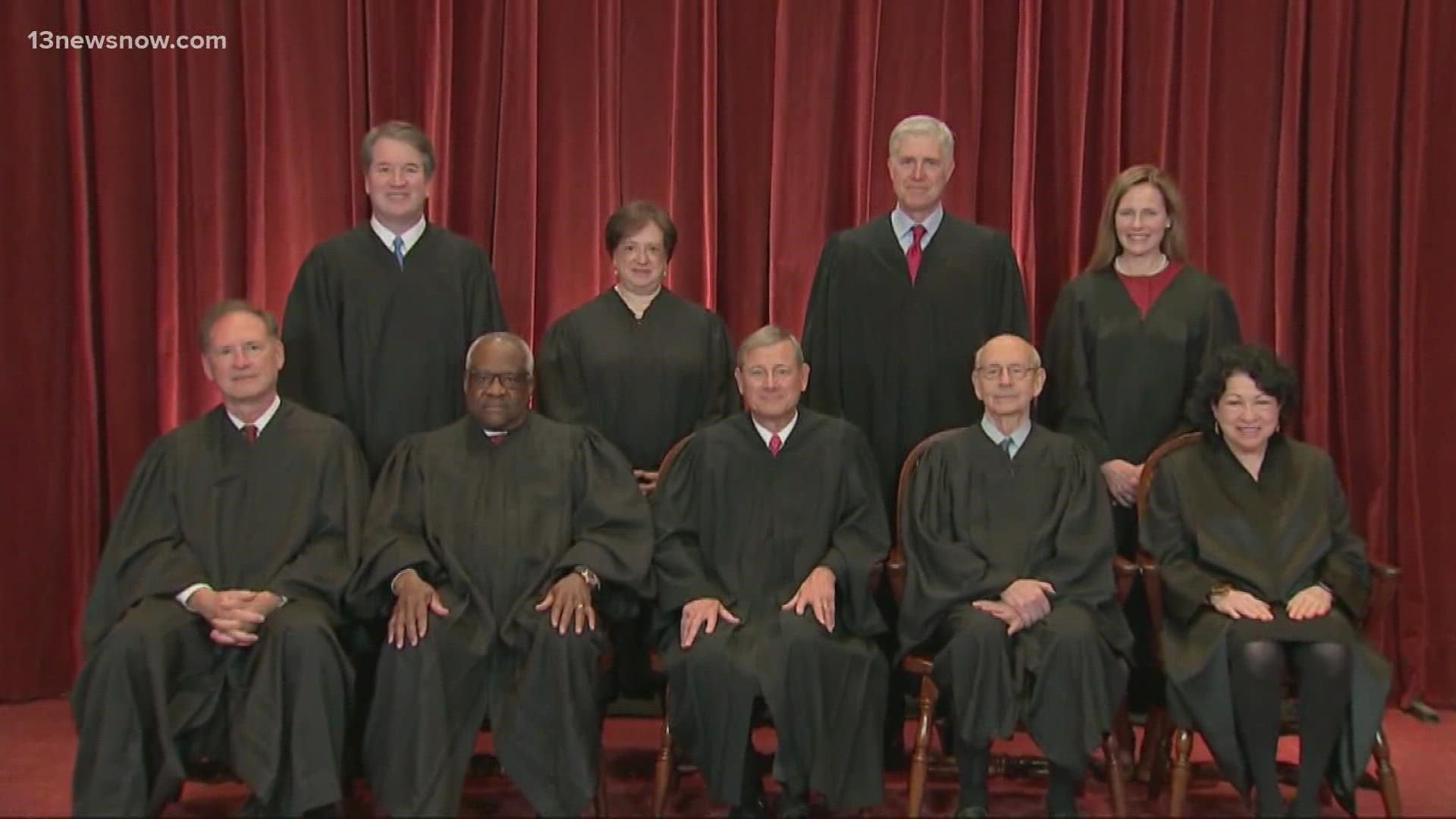NORFOLK, Va. — The Supreme Court on Thursday limited the Environmental Protection Agency's authority to regulate carbon dioxide emissions from power plants, a major blow in the fight against climate change.
In a 6 to 3 conservative majority vote, the high court said the Clean Air Act, a major anti-air pollution law, doesn't give the EPA broad authority to regulate greenhouse gas emissions from power plants that contribute to global warming.
Well before the Supreme Court's decision, Virginia started taking on emissions with its own state laws and programs, the most notable being the Virginia Clean Economy Act (VCEA) and the state's participation in the Regional Greenhouse Gas Initiative (RGGI).
In an interview with 13News Now, Frank Rambo with the Southern Environmental Law Center (SELC) described Virginia as a leading state when it comes to tackling climate change, something other states and the federal government can learn from.
"States are not helpless," Rambo said. "Virginia is a great example of state politicians getting together and deciding on a policy that makes sense for [the state]."
With that in mind, how do these laws work and what do they mean for Virginians?
2 major power companies in Virginia required to transition to clean energy
The VCEA, signed by former Democratic Gov. Ralph Northam in 2020, changed how the state's utilities generate electricity by requiring a transition to clean energy.
Under the law, Dominion Energy Virginia and Appalachian Power, two major power companies in Virginia, have to move to 100% carbon-free energy production by 2045 and 2050, respectively.
The law also declared certain megawatt levels of solar and wind energy to be "in the public interest," set a schedule for closing fossil fuel power plants, and expanded net metering (a plus for people who want to use solar panels for power).
Along with the VCEA, the RGGI program requires power companies to cut emissions to meet a state-required cap on emissions or buy additional allowances through RGGI auctions to emit.
Rambo explained that the RGGI program is designed to incentivize power companies to make the move to clean energy by adding a price tag to emissions.
With that in mind, power companies could decide what's cheapest for them: buying the allowances, or running a power plant less and using that money to invest in cleaner power sources.
Rambo noted that proceeds from RGGI auctions go to Virginia programs regarding energy efficiency and protections from problems stemming from climate change, such as sea-level rise and more intense storms.
Virginia's participation in RGGI stems from the Clean Energy and Community Flood Preparedness Act, which Northam also signed in 2020.
Supporters of these laws and programs touted them as a historic step in the fight against climate change, the Associated Press reported, but they face an uncertain future under the current Republican leadership in Virginia.
Virginia Republican leaders oppose current clean energy programs
In a statement to 13News Now, a spokesperson for Virginia Attorney General Jason Miyares praised the Supreme Court's ruling for curbing the EPA's authority "on the States."
"The federal government should not be exceeding its statutory authority to make energy more expensive at a time that Virginia families are struggling to fill their gas tanks," Miyares spokesperson Victoria LaCivita said.
When it comes to state action, Republican Gov. Glenn Youngkin has pushed for Virginia to leave RGGI, describing it as "a bad deal for Virginians" and "a carbon tax passed on to families, individuals and businesses."
Upon taking office in January 2022, Youngkin signed an executive order that ordered Virginia's exit from RGGI through legislative or regulatory action. In March 2022, his administration released a report the governor claimed showed why RGGI didn't work.
"We're working every day to cut energy taxes and reduce costs -- like the RGGI carbon tax -- and make Virginia the best place to live, work and do business," Youngkin said in a news release that included the report.
The SELC criticized the report for having conclusions about RGGI that "really don’t match the data," saying the report's data actually shows why the program "works well."
Back in February 2022, committees in the Democrat-controlled Virginia Senate stopped bills that would repeal VCEA and RGGI, both of which passed the Republican-controlled House of Delegates.
13News Now reached out to Youngkin's office for a comment on his legislative priorities in relation to the VCEA.

